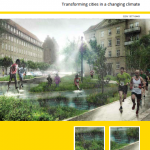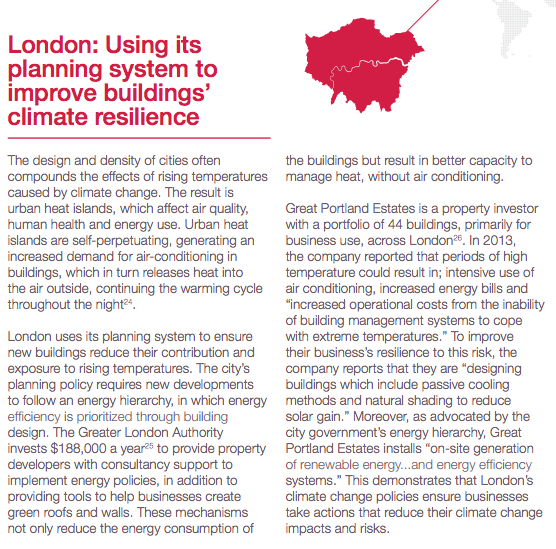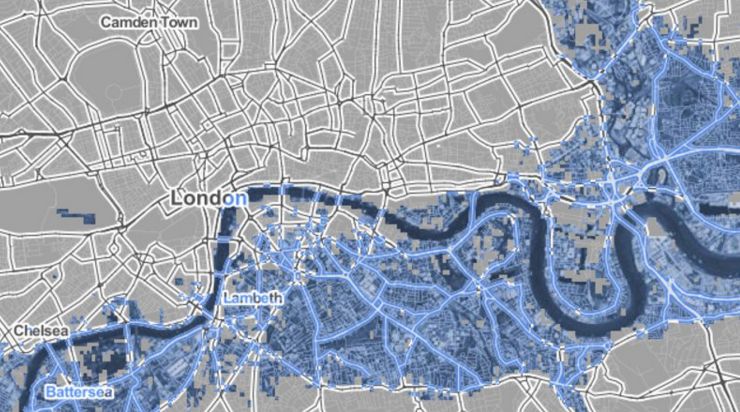Site search:
-
What’s new?
Energy for London Tags
Brent Buildings Camden Carbon Emissions CHP Cities Climate Adaptation Community Heating Community Initiatives Croydon Data DECC Decentralised Energy Distribution ECO Energy Costs Energy Efficiency Enfield FIT Fuel Poverty Funding Green Deal Hackney Haringey Housing Islington Lambeth Library Local Authorities Mayor Newham Ofgem Olympics Photovoltaics Planning RE:FIT RE:NEW Renewable Energy Retrofit Southwark Tower Hamlets Transport Waltham Forest Waste WestminsterEnergy Archives:
- February 2021 (1)
- January 2021 (15)
- December 2020 (15)
- November 2020 (9)
- October 2020 (3)
- August 2020 (5)
- July 2020 (3)
- June 2020 (4)
- April 2020 (10)
- March 2020 (5)
- February 2020 (2)
- January 2020 (3)
- October 2019 (1)
- September 2019 (4)
- August 2019 (2)
- July 2019 (1)
- August 2018 (1)
- November 2016 (8)
- October 2016 (8)
- September 2016 (2)
- August 2016 (8)
- July 2016 (14)
- April 2016 (12)
- March 2016 (16)
- February 2016 (8)
- January 2016 (4)
- December 2015 (1)
- November 2015 (1)
- October 2015 (16)
- September 2015 (3)
- June 2015 (1)
- May 2015 (1)
- April 2015 (1)
- March 2015 (1)
- February 2015 (1)
- January 2015 (1)
- December 2014 (18)
- November 2014 (4)
- August 2014 (8)
- July 2014 (7)
- June 2014 (25)
- May 2014 (8)
- April 2014 (4)
- March 2014 (12)
- February 2014 (7)
- January 2014 (13)
- December 2013 (11)
- November 2013 (15)
- October 2013 (15)
- September 2013 (18)
- August 2013 (5)
- July 2013 (20)
- June 2013 (33)
- May 2013 (8)
- April 2013 (16)
- March 2013 (25)
- February 2013 (14)
- January 2013 (20)
- December 2012 (23)
- November 2012 (23)
- October 2012 (25)
- September 2012 (14)
- July 2012 (12)
- June 2012 (43)
- May 2012 (20)
- April 2012 (8)
- March 2012 (40)
- February 2012 (39)
- January 2012 (40)
- December 2011 (22)
- November 2011 (40)
- October 2011 (33)
- September 2011 (48)
- August 2011 (40)
- July 2011 (58)
- June 2011 (41)
- May 2011 (80)
- April 2011 (38)
- March 2011 (33)
- February 2011 (25)
- January 2011 (24)
- December 2010 (3)
- November 2010 (7)
- October 2010 (6)
- September 2010 (7)
- August 2010 (1)
- July 2010 (2)
- June 2010 (4)
- May 2010 (1)
- March 2010 (3)
- February 2010 (3)
- December 2009 (5)
- November 2009 (2)
- October 2009 (3)
- July 2009 (3)
- June 2009 (1)
- April 2009 (1)
- March 2009 (1)
- February 2009 (1)
- January 2009 (1)
- December 2008 (2)
- October 2008 (1)
- September 2008 (1)
- July 2008 (1)
- March 2008 (2)
- January 2008 (2)
- October 2007 (1)
- September 2007 (3)
- July 2007 (1)
- March 2007 (1)
- February 2007 (3)
- November 2006 (3)
- August 2006 (1)
- February 2006 (1)
- May 2005 (1)
- February 2004 (1)
Search Results for: adaptation
COVID-19 provides lessons on climate adaptation for cities
9 April 2020: Link to an article on phys.org – one of a number which are bringing together some of the parallels between the impacts cities are facing as a result of the coronavirus crisis and likely challenges these urban communities will encounter due to increasing temperatures as a result of global climate change. This piece, by environmental lawyer Amy Turner (also senior fellow at Columbia Law School’s Sabin Center for Climate Change Law) includes some useful links to other thought pieces and research work in this area.
“I hesitate to draw early conclusions about the connection between global emissions, climate impacts and our current pandemic conditions. However, this is a moment of opportunity to marry the best of city climate policy and virus response. While big policy conclusions, connections and questions will continue to be debated, right now there are important observations to be made and potential lessons learned for city policymakers about overlapping approaches from past emissions reduction policies, current COVID-19 policy and future climate policy after the virus has subsided. This post explores some of these intersecting policy areas.”
Posted in News
Tagged Cities, Climate Adaptation
Comments Off on COVID-19 provides lessons on climate adaptation for cities
Transnational municipal networks and climate change adaptation
April 2020: Paper published in the Journal of Cleaner Production
Volume 257, 1 June 2020. “Cities have increasingly recognised the risks posed by climate change and the need to adapt. To support climate action, cities have formed cooperative networks such as the C40 Cities Climate Leadership Group, the Global Covenant of Mayors and the International Council for Local Environmental Initiatives. However, a lack of scientific evidence exists when it comes to the actual impact of network participation, especially in the context of adaptation. This study is the first to test statistically the association between network membership and progress in adaptation planning in 377 cities globally. The results show that network members are more likely to have started the adaptation process than other cities, and that being a member of multiple networks is associated with higher levels of adaptation planning. Moreover, cities in wealthier countries are more likely to be more advanced in adaptation planning than others. We consider the possible explanations for these results based on the previous literature and information gathered from the networks. The main implications of our study are that network organisations should consider how to encourage the adaptation process among their members and the increased involvement of cities from lower-income countries.” Open access paper available here.
Urban adaptation to climate change
 July 2016: A new European Environment Agency (EEA) study “Urban adaptation to climate change in Europe 2016 – Transforming cities in a changing climate” has just been published. The report examines whether action on adaptation has led to more climate-resilient cities and if not, what needs to be changed.
July 2016: A new European Environment Agency (EEA) study “Urban adaptation to climate change in Europe 2016 – Transforming cities in a changing climate” has just been published. The report examines whether action on adaptation has led to more climate-resilient cities and if not, what needs to be changed.
The EEA has a few references to work undertaken in London such as:
- “London is installing white panels on top of its public transport buses to reflect the rays of the summer sun and keep the vehicles cooler” (which refers to a 2014 article here). and that;
- “London held a workshop on adaptation indicators in 2015 but as of November 2015 had not yet decided how it will take the work forward” (it is not immediately clear which workshops this comment refers to).
No mention is made in the study to London’s authoritative Climate Change Adaptation Strategy from 2011 or the London Plan’s climate change adaptation policies. (NB Mayor Boris Johnson had committed in February 2015 to produce an update to the adaptation strategy sometime in 2015. Following the non-publication of this update, responding to a question a year later, he committed to the update being produced before his departure as Mayor (May 2016) – however, as yet, no update has been released).
Adaptation responses to climate change differ between global megacities
March 2016: “The major cities in the Global North are protecting themselves against the risks of climate change, while cities in developing countries continue to suffer from massive under-investment. A study on ten cities, led by Lucien Georgeson of University College London, found that financing for climate change adaptation had increased across the board by 3% to 4% per year in recent years.” Read the full article Euroactiv article
“Without significant action against climate change, much of central London may be under water by 2050.”
How climate adaptation in cities creates a resilient place for business
10 July 2014: A new study by the Carbon Disclosure Project (CDP) reporting on how the “majority of the world’s major cities have disclosed that climate change presents a physical risk to the businesses operating in their cities.”
The press release sets out that CDP has “examined data from 50 cities where 78 companies have reported that they expect climate change to have a physical effect,” and the study illustrates action taken through a number of city case studies, including one looking at how London uses its planning powers.
 The case study states that the GLA provides “property developers with consultancy support to implement energy policies”. However, what actually happens is that expert consultancy support is brought into the GLA to provide guidance to planning officers to ensure that developers are complying with climate mitigation policies set out in London’s spatial planning strategy – the London Plan. This is fully explained in a reference actually cited in the CDP report – which links to a GLA approval document providing background details for this consultancy spend, which sets out that:
The case study states that the GLA provides “property developers with consultancy support to implement energy policies”. However, what actually happens is that expert consultancy support is brought into the GLA to provide guidance to planning officers to ensure that developers are complying with climate mitigation policies set out in London’s spatial planning strategy – the London Plan. This is fully explained in a reference actually cited in the CDP report – which links to a GLA approval document providing background details for this consultancy spend, which sets out that:
- The GLA have procured energy engineering consultancy support from 1st April 2014 to 30th March 2018, with a value of up to £440,000.
- This technical support has helped secure CO2 emissions reductions of 36% more than 2010 Building Regulations requirements for developments
- This support helps provide officers with an assessment of complex energy systems such as Combined heat and power systems, district heating network specifications, the use of heat pumps etc.
Analysis published at the end of last month by the GLA provides some detailed information on how this consultancy support has helped secure significant levels of low carbon investment in new London developments. Full details here.
Data on climate adaptation measures installed in new London development are less well documented. A recent Mayoral Question (MQ) set out an estimate on the number of green roofs installed in London. A further related MQ touch upon the Mayor’s plan to develop an interactive map on green roofs in London.
London in the National Climate Change Adaptation Plan
1 July 2013: The Department for the Environment have today released ‘The National Adaptation Programme: Making the country resilient to a changing climate’ which makes a number of interesting references to work being undertaken in the capital responding to future threats that may arise due to climate change. These include:
- The London Heat Thresholds Project [p27] – further details here
- Transport for plans to carry out an extensive flood risk review for the London Underground network [p40]
- The GLA and London Climate Change Partnership is undertaking a scoping study to understand the adaptation economy in London to meet future local, national and international demand. [p87]
- The ‘adaptation and resilience’ sub-sector (which also includes activities not specifically addressing climate change) generated £12 billion in the UK in 2011/12.In the same period this sub-sector generated sales of £2.5 billion in 2011-12 in London. In the same period, the climate change element of this sub-sector in London had a turnover of £431 million and employed nearly 4,000 people, demonstrating the potential for growth. [p87]
- Details of a National Adaptation Plan (NAP) Cities Commitment to be taken forward by the Core Cities group along with London Councils and the Greater London Authority [p 102-104]
An accompanying paper also published today by Defra – ‘Economics of the national adaptation programme‘ – estimates the growth of energy use in London as a result of increased demand for cooling services.
- Climate change could lead to increased uptake and use of air cooling systems in buildings.
- If the uptake of air conditioning systems continues at today’s rate by 2050, so that around 1% of households in those areas have cooling (compared with 0.6% in 2010), energy demand for cooling could triple between 2010 and 2050 in London.
- If in 2050 half of the households in London had air conditioning, energy demand for cooling could be around 37 times higher in 2050 compared to no climate change and current air conditioning take-up trends. [p14]
The Mayor’s London Climate Change Adaptation Plan was published in 2011 and can be viewed here. See an earlier post on challenges faced by London as a result of potential increasing future temperatures.
Socially Just Adaptation to Climate Change
July 2012: Islington took part in a Joseph Rowntree Foundation study into “local approaches to climate change across the UK, and the extent to which these take social justice issues into account.” Further information in briefing downloadable here.
Local authorities big society and adaptation to climate change
October 2011: Local Government Information Unit (LGIU) report undertaken to:
- Develop a self-help toolkit to support community involvement in, and ownership of, local adaptation
- Devise business models for how local authorities can work with local communities to deliver adaptation.
Sutton Launch Climate Change Adaptation Strategy
16 June 2011: As part of the Council’s 2020 Vision of ‘One Planet Living’and promoting the Borough as London’s most sustainable suburb, Sutton’s Climate Change Adaptation Strategy seeks to ensure that the location, layout and design of all new developments minimise vulnerability of people and propertyand are fully adapted and resilient to future climate impacts.
A renewed focus for sustainability at the V&A
January 2021: Blog post by Sara Kassam, who has recently taken on the enviable position of Sustainability Lead at the V&A, “a role created to embed sustainability within the institution“. Sara highlights a number of important areas relevant to the scope of work of the V&A which she will be concentrating on (including sustainability in the fashion industry) – but great to see that V&A have recently joined the London Climate Change Partnership (LCCP), which focuses on key adaptation actions that the city must act on in response to climate change. Sara also rightly highlights that the sites the museum are located in will need to take into the climate action plans set by their respective boroughs – specifically Kensington and Chelsea, Tower Hamlets and Newham.
A particular interesting energy aspect around Exhibition Road is the heat and power infrastructure based in sites such as the Natural History Museum (more here – but paywall) and Imperial College – and the opportunity to further extend the network in the area.
Posted in News
Tagged Climate Adaptation, Community Heating, Kensington and Chelsea
Comments Off on A renewed focus for sustainability at the V&A
LGA launches report to help councils tackle climate change
21 August 2020: “The LGA, which represents councils in England and Wales, has worked closely with the Centre for Public Scrutiny and has published a guide to help councils play a leading role in tackling the climate crisis at a local level. The resource, which sets out 10 scrutiny questions, will help all councils and policymakers to embed the necessary environmental, social and cultural changes that communities need to see to build resilience to respond to climate challenges such as investment strategies and transport plans.”
The guide can be downloaded here and is a useful read setting out comprehensive suggestions on routes to develop a robust climate emergency plan including how future scrutiny of plans can be undertaken; including the local community and how to best engage the public in the plan; planning the involvement of local businesses, partners and employers to understand the local growth context. The 10 questions framing the report are as follows:
Continue reading…
Posted in Library, News
Tagged climate emergency, Local Authorities, London Councils
Comments Off on LGA launches report to help councils tackle climate change
How are cities planning to respond to climate change?
August 2018: Paper published in Journal of Cleaner Production
Volume 191, 1 August 2018. “This paper reports the state of local planning for climate change by collecting and analysing information about local climate mitigation and adaptation plans across 885 urban areas of the EU-28… Our analysis reveals that city size, national legislation, and international networks can influence the development of local climate plans. We found that size does matter as about 80% of the cities with above 500,000 inhabitants have a comprehensive and stand-alone mitigation and/or an adaptation plan (A1). Cities in four countries with national climate legislation (A2), i.e. Denmark, France, Slovakia and the United Kingdom, are nearly twice as likely to produce local mitigation plans, and five times more likely to produce local adaptation plans, compared to cities in countries without such legislation.” Open access article available here.


